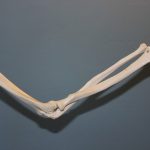As you age, it is important to address the health issues that are specific to older adults. These can range from chronic conditions such as arthritis and heart disease to mental health concerns like depression and anxiety. While aging may come with its challenges, there are steps you can take to maintain a healthy lifestyle and manage these issues effectively.
In this article, we will explore common health issues faced by older adults, the importance of maintaining a healthy lifestyle in later years, and managing chronic conditions through regular check-ups and screenings.
We will also provide resources and support for healthy aging so that you can live your best life as you grow older.
Let’s dive in!
Common Health Issues Faced by Older Adults
 The prevalence of common health ailments encountered by individuals in their later years necessitates a comprehensive understanding and focus on the management and prevention of these conditions.
The prevalence of common health ailments encountered by individuals in their later years necessitates a comprehensive understanding and focus on the management and prevention of these conditions.
Falls prevention is one such area that requires attention, as falls are a leading cause of injury among older adults. As we age, our balance and coordination become compromised, increasing the risk of falls that can result in serious injuries. It’s important for older adults to engage in regular exercise programs that focus on strengthening muscles and improving balance, as well as taking steps to minimize hazards in their living environment.
Another common issue faced by older adults is cognitive decline management. As we age, it’s not uncommon to experience changes in memory or other cognitive functions. However, some individuals may develop more severe forms of cognitive decline such as dementia or Alzheimer’s disease. There are several strategies that can help with managing these conditions including medication management, lifestyle modifications (such as engaging in mentally stimulating activities), and support from family members or caregivers.
Lastly, vision and hearing impairments are also common health issues experienced by older adults. These conditions can greatly impact quality of life if left unaddressed. Regular check-ups with an eye doctor or audiologist can help identify any changes or issues early on so that they can be properly managed or treated. In addition, using assistive devices such as glasses or hearing aids can greatly improve an individual’s ability to function independently and maintain social engagement throughout their later years.
Maintaining a Healthy Lifestyle in Later Years
Staying fit and active in your golden years can be a challenge, but it’s crucial to prioritize healthy habits for a fulfilling life.
As an older adult, you have unique nutritional needs that require attention. Aim to consume a balanced diet with plenty of fruits, vegetables, whole grains, lean proteins, and healthy fats. Limit your intake of processed foods and sugary drinks to reduce the risk of chronic diseases such as diabetes.
Physical activity is another critical aspect of maintaining a healthy lifestyle in later years. Regular exercise can help improve cardiovascular health, strengthen bones and muscles, boost mood and cognitive function, and reduce the risk of falls. Consider incorporating low-impact exercises such as walking, swimming, or yoga into your daily routine. Make sure to consult with your healthcare provider before starting any new exercise regimen.
In addition to proper nutrition and physical activity, getting enough sleep is essential for overall health and well-being. As you age, sleep patterns may change due to hormonal changes or medical conditions. Develop good sleep hygiene habits such as keeping a consistent bedtime routine, avoiding caffeine before bed, and creating a comfortable sleeping environment.
Lastly, don’t forget to stay socially engaged by spending time with loved ones or joining community groups that interest you. Maintaining strong social connections has been linked to better mental health outcomes in older adults.
By prioritizing these healthy habits in your daily life, you can enjoy more fulfilling golden years full of vitality and joy without compromising on quality of life!
Importance of Regular Check-Ups and Screenings
You can’t always rely on how you feel to know if everything is okay, so make sure you regularly schedule check-ups and screenings to catch any potential health problems early. Preventive measures are essential for maintaining good health as we age.
Many chronic diseases, such as high blood pressure and diabetes, may not show symptoms until they have progressed to a more advanced stage. By getting regular check-ups and screenings, your doctor can detect these conditions early and provide treatment before they become more challenging to manage.
Early detection is key in preventing or managing many of the most common health issues older adults face. Regular screenings for conditions such as colon cancer, breast cancer, prostate cancer, and osteoporosis are essential in detecting these conditions early when treatment options are most effective. Additionally, routine blood work can help identify high cholesterol levels, kidney function issues, and other medical concerns that may not show symptoms initially.
Finally, it’s important to remember that regular check-ups with your primary care physician are an opportunity to discuss any questions or concerns you may have about your health. Your doctor can address any physical or mental changes you’re experiencing and provide resources for maintaining good health through lifestyle choices like diet and exercise.
By making regular check-ups a priority in your healthcare routine, you’re taking a proactive approach towards staying healthy as you age.
Managing Chronic Conditions in Older Age
As you age, it’s important to learn how to manage chronic conditions so they don’t interfere with your daily life. Self-care strategies can help improve your overall quality of life.
It’s important to stay active, eat a healthy diet, get enough sleep, and reduce stress as much as possible. Medication management is also essential. Make sure to take your medications exactly as prescribed by your doctor.
Keep track of when you need to take them and any potential side effects. If you have trouble remembering when to take your medications or managing multiple prescriptions, consider using a pill organizer or talking with your doctor about simplifying your medication regimen.
Staying in regular communication with your healthcare team is key in managing chronic conditions in older age. Attend all recommended check-ups and screenings, as well as follow-up appointments with specialists if necessary.
This will ensure that any changes in your condition are caught early on and proper treatments can be implemented for optimal health outcomes.
Resources and Support for Healthy Aging
Community engagement is an excellent way to stay connected with others and avoid feelings of loneliness or isolation. Many communities offer senior centers, clubs, and events that cater specifically to older adults. These programs provide opportunities for socializing, learning new skills, and staying active. By engaging with others in your community, you can maintain a sense of purpose and belonging.
Technology adoption is another powerful tool for healthy aging. Smart devices like phones, tablets, and smartwatches can help you stay organized, track your health metrics like blood pressure or heart rate, set reminders for medications or appointments, and communicate with loved ones even if they’re far away. There are also many apps available that provide fitness routines tailored to the needs of older adults or deliver mindfulness exercises to reduce stress levels.
In addition to community engagement and technology adoption, there are many other resources available to support healthy aging. These may include counseling services for mental health issues like anxiety or depression; home care services that provide assistance with activities of daily living; transportation services that make it easier to get around town; financial planning services that help ensure long-term security; and educational programs on topics ranging from nutrition to fall prevention.
By seeking out these resources proactively, you can enhance your quality of life as you age gracefully into your golden years.
What is the most effective way to prevent cognitive decline in older adults?
Intergenerational activities and a brain healthy diet are two of the most effective ways to prevent cognitive decline in older adults.
Engaging in intergenerational activities, such as volunteering or spending time with younger generations, can help keep the mind active and stimulated.
Additionally, maintaining a diet rich in fruits, vegetables, whole grains, and lean proteins can improve brain health and decrease the risk of cognitive decline.
It’s important to note that while these lifestyle factors can be beneficial for everyone, they’re especially crucial for older adults looking to maintain their cognitive function.
How does social isolation affect the health of older adults?
Social isolation can have negative impacts on the mental and physical health of older adults. For example, imagine an elderly woman who lives alone and rarely leaves her home due to mobility issues. She has no family nearby and few friends left alive.
Without social support, she may experience feelings of loneliness, depression, and anxiety that can worsen over time. Mental health interventions such as therapy or support groups can help alleviate these symptoms by providing a sense of community and connection.
It’s important to recognize the role that social interaction plays in maintaining overall health for older adults and to take steps towards addressing any isolation they may be experiencing.
What are some alternative therapies that can help manage chronic pain in older adults?
Acupuncture therapy and mind-body therapy are two alternative methods that can help manage chronic pain in older adults.
Acupuncture involves the insertion of thin needles into specific points on the body to stimulate the nervous system and release endorphins, which are natural painkillers.
Mind-body therapies focus on using relaxation techniques like meditation, deep breathing exercises, and yoga to reduce stress levels and promote a sense of calmness.
Both acupuncture and mind-body therapies have been shown to be effective in managing chronic pain in older adults without the use of opioids or other medications that can cause side effects.
It’s important to consult with a healthcare professional before trying any new therapies for managing chronic pain.
What are the most common myths and misconceptions about aging and health?
Did you know that by 2030, almost one in every five Americans will be over the age of 65?
With healthy aging becoming a priority for many older adults, it’s important to address the most common myths and misconceptions about aging and health.
One myth is that age-related diseases are inevitable and cannot be prevented or treated effectively. However, research shows that adopting healthy lifestyle habits such as regular exercise, healthy eating, and stress management can significantly reduce the risk of developing age-related diseases like diabetes and heart disease.
It’s important to remember that getting older doesn’t mean giving up on your health – in fact, it’s never too late to make positive changes that can improve your overall well-being.
How can technology be used to improve the health and wellbeing of older adults?
Using remote monitoring and assistive technology can greatly improve the health and wellbeing of older adults.
With remote monitoring, healthcare providers can remotely track an individual’s vital signs, medication adherence, and overall health status. This helps to identify potential health issues before they escalate into more serious problems.
Assistive technology such as mobility aids, hearing aids, and vision aids can greatly enhance an individual’s quality of life by providing increased independence and accessibility.
By leveraging these technologies, older adults can maintain their independence while receiving the necessary support for their health needs.
As you approach your golden years, it’s essential to take care of yourself and address any health issues that may arise. Like a well-oiled machine, your body needs regular maintenance to function at its best.
Regular check-ups and screenings can help identify potential problems before they become major issues. You can also manage chronic conditions by taking medication as prescribed and making lifestyle changes.
Remember, aging gracefully is not just about physical health but also mental well-being. Keep yourself engaged in activities you enjoy and stay connected with loved ones.
As Maya Angelou once said, “Aging is an extraordinary process where you become the person you always should have been.” Embrace the journey of aging with optimism and positivity, and don’t forget to seek out resources and support to help you along the way.









